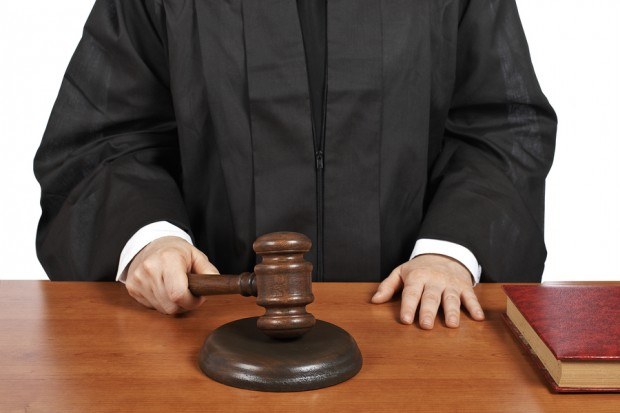Two of the most important courts for resolving U.S. business disputes, Delaware’s Court of Chancery and its state Supreme Court, may be on the cusp of a dramatic turnover that could affect corporate cases for years to come.
The state’s tight-knit legal community is abuzz over whether the outspoken head of the Court of Chancery, Leo Strine, will become chief justice of the state’s Supreme Court after the incumbent retires on Nov. 30.
The move would leave a big gap at the Court of Chancery, where Strine has handed down his own brand of judicial pyrotechnics since 1998. It could also lead to even more change on the state’s Supreme Court, the ultimate arbiter of the law that governs most U.S. corporations.
Speculation began on Sept. 6, when Myron Steele, the chief justice of Delaware’s Supreme Court, said he would cut short his 12-year term and retire at the end of November.
Although Strine has not said if he is planning to apply for the position, he has by far the widest support, particularly among the state’s lawyers.
But Strine’s domineering style has also earned him many detractors. Democrat Governor Jack Markell, who will make the appointment, may prefer a less controversial figure, which would also give him the opportunity to appoint the first female chief justice in the state’s history.
The change could be more style than substance in the rigorous world of Delaware corporate law. But whatever the outcome, the appointment will be the first change in nine years on the state’s Supreme Court.
“People’s heads are already hurting as they try to figure out not only this opening, but the potential derivative openings,” wrote Celia Cohen, a columnist at Delawaregrapevine.com, a website that follows the internal workings of the state capital, Dover.
DELAWARE ROYALTY
The chief justice and the chancellor, as Strine is officially known, carry an air of royalty in the world of corporate law and they are sought-after as speakers at conferences around the world.
They are also vital to Delaware’s economy. Most of the largest U.S. businesses are incorporated in Delaware, even if they have no operations in the state, because of its long-established case law and the consistency of its courts. Around 40 percent of Delaware’s general revenue is tied in some way to chartering businesses.
Delaware courts have recently thwarted Carl Icahn’s bid to disrupt a buyout of Dell Inc, helped prevent a hostile takeover of Vulcan Materials Co and allowed the $21.1 billion sale of El Paso Corp despite an outcry over conflicts of interest.
If elevated to the state Supreme Court, Strine would bring a mastery of the law and a reputation as a promoter of Delaware’s courts. For example, he often warns judges in other states to “stay in their lane” and keep their hands off Delaware corporate law cases.
Governor “Markell has to go with someone who has helped make the brand,” said one local attorney who did not want to be identified talking about such a delicate matter.
Strine declined to comment on his intentions. A spokeswoman said the governor looks forward to receiving candidate names from a commission that officially nominates judges.
Many credit Strine with avoiding “pro-management” or “pro-shareholder” labels, while coming down hard on what he sees as frivolous lawsuits. “He’s anti-waste of time,” said Brian Quinn, a professor at Boston College Law School.
Indeed, the biggest beneficiaries if Strine is promoted could be shareholder lawyers who sue corporate boards with so-called “ABC” lawsuits – they file them “anywhere but Chancery” in part to avoid Strine’s demanding standards.
And yet, Strine’s tendency to be outspoken could work against him.
Last year, he compared a spat between fashion designer Tory Burch and her former husband as a “drunken WASP fest,” using a derogatory term for White Anglo-Saxon Protestants even though Burch is Jewish. The ensuing dust-up prompted Markell to issue a rare reprimand in which he urged Strine to “not stray so far from the issues at hand.”
“There are a lot of eyes watching Delaware courts,” said Mike Castle, a former Delaware governor. “On the Supreme Court you have to consider the temperament of the person and their ability to organize and lead in addition to their legal abilities.”
DIFFICULT CONFIRMATION
Strine came to the Court of Chancery from the administration of former Governor Tom Carper, a Democrat, where Strine made some enemies in the legislature. His senate confirmation vote in 1998 was unusually close and some said they were concerned about his ability to curry favor with the Dover politicians who decide on funding for the judiciary.
If the governor bypasses Strine or the chancellor does not apply, current Supreme Court Justices Randy Holland and Carolyn Berger may be candidates.
Holland is in his third 12-year term. He’s a Republican, which would make him an unusual but not unprecedented choice for a governor of the other party. Many think he might have the reputation that would cross party lines. Holland did not respond to an emailed request for comment.
Many in the state’s legal community raised the possibility that the reserved and scholarly Berger could be in the running as the only woman ever to have served on either the Court of Chancery or the Supreme Court. She told Reuters she was considering applying for the position of chief justice.
Last year, she criticized Strine for applying his “world views” when she dissented from a Supreme Court ruling affirming Strine’s record $300 million award of lawyers’ fees in a shareholder lawsuit.
And she was a member of the Supreme Court last year when it issued a rare “per curiam” opinion – one by the entire court in which the author is unknown – that devoted five pages to reminding Strine his rulings were not the place for his individual views.
Markell has appointed several women to lower courts since a report by the American Bar Association in 2009 said the state had the lowest proportion of female judges in the U.S. Northeast.
“Delaware is really behind New York and Washington and Chicago” on appointing women to the judiciary, said Jill Fisch, a professor at the University of Pennsylvania Law School.
For that reason, attention has also fallen on Jan Jurden, another Democrat and a judge on the state’s Superior Court in Wilmington. Jurden, who declined to comment, has some corporate law experience and locals see her as a possibility for either chief justice or as a replacement for Strine if he is elevated.
“If Markell goes with Strine for chief justice, he almost has to name a woman to the Court of Chancery,” said a lawyer based in Wilmington who asked not to be identified.
Many local lawyers wonder if the justices on the Supreme Court, which generally issues its corporate law rulings unanimously, would consider retiring before their terms end rather than work under Strine, with his shoot-from-the-hip style.
Rounding out the Supreme Court is Justice Jack Jacobs. All four Supreme Court justices have been in the judiciary for at least 24 years, the period that qualifies them for a full pension.
Chief Justice Steele, who passed the 24-year mark last year, seemed to nudge his colleagues on the bench to follow his example and hang up their robes in a recent interview with the News Journal newspaper.
People should understand that when they serve in public office, “there is a time for them to leave and make room for someone else,” Steele said.
Markell has said he will begin the process of selecting a nominee before Steele leaves on Nov. 30. The Judicial Nominating Commission, a panel of lawyers and non-lawyers appointed by the governor, will solicit nominees and then send recommendations to Markell.
(Reporting by Tom Hals; Editing by Eddie Evans and Leslie Gevirtz)





















 20,000 AI Users at Travelers Prep for Innovation 2.0; Claims Call Centers Cut
20,000 AI Users at Travelers Prep for Innovation 2.0; Claims Call Centers Cut  Flood Risk Misconceptions Drive Underinsurance: Chubb
Flood Risk Misconceptions Drive Underinsurance: Chubb  Winter Storm Fern to Cost $4B to $6.7B in Insured Losses: KCC, Verisk
Winter Storm Fern to Cost $4B to $6.7B in Insured Losses: KCC, Verisk  Nearly 26.2M Workers Are Expected to Miss Work on Super Bowl Monday
Nearly 26.2M Workers Are Expected to Miss Work on Super Bowl Monday 